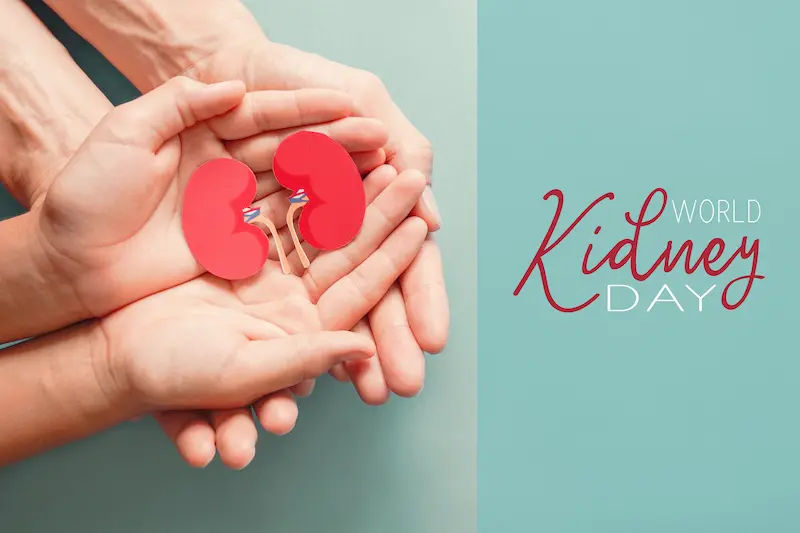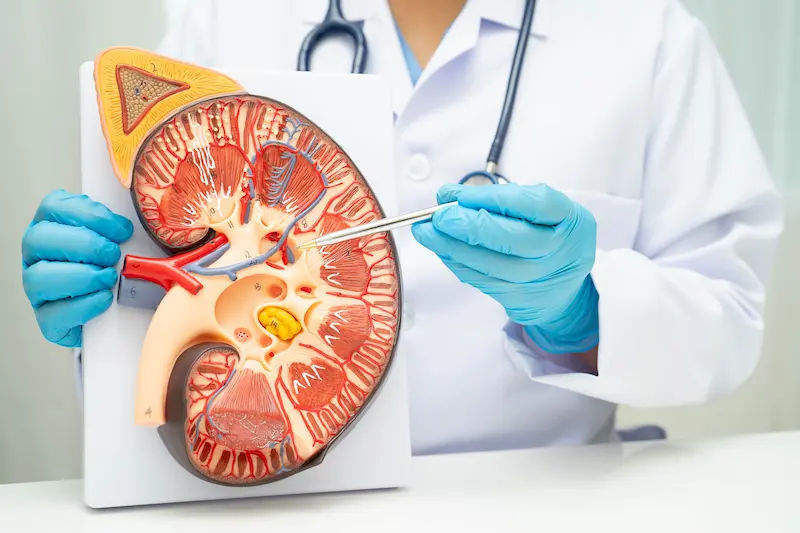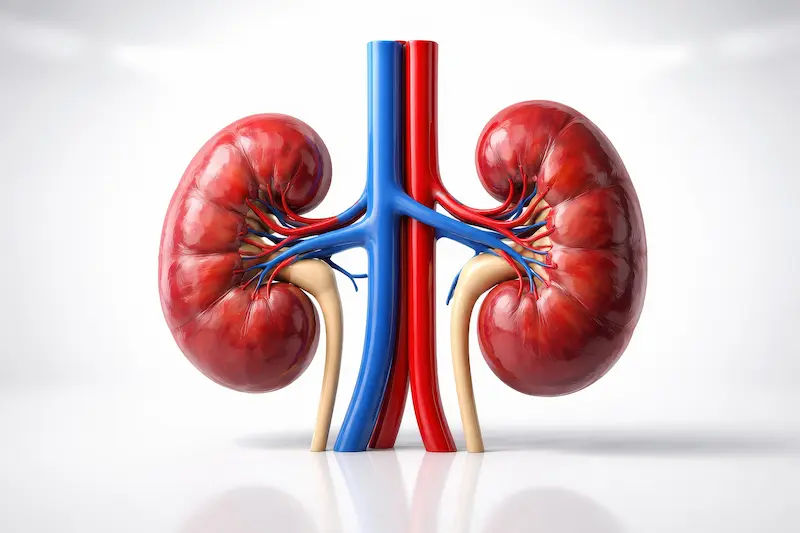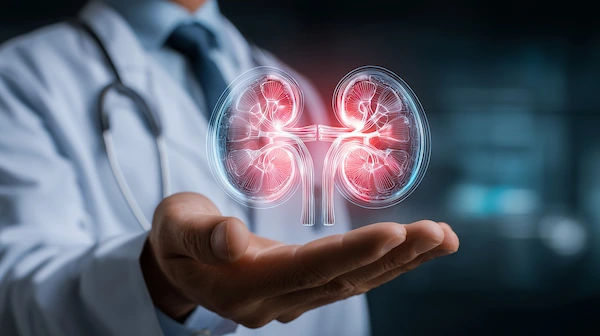10 Harmful Habits That Are Damaging Your Kidneys
Learn about 10 common habits that can damage your kidneys. Discover tips to protect kidney health and prevent long-term complications.


Introduction
Your kidneys are incredible organs, working tirelessly 24/7 to filter your blood and keep your body in balance. Yet, we often take them for granted, engaging in daily habits that silently compromise their health. Kidney disease is often called a "silent killer" because symptoms may not appear until significant damage has occurred. This article is your essential guide to understanding the common, everyday behaviors that pose the greatest risk to your kidneys. We will delve beyond the surface, explaining not just what these harmful habits are, but why they are so damaging from a physiological perspective. By the end, you'll be equipped with the knowledge to protect these vital filters and support your long-term health. Let's uncover the top culprits and learn how to build a kidney-friendly lifestyle.
Understanding Your Kidneys: The Body's Master Filters
Before we list the harmful habits, it's crucial to understand what your kidneys do and why they are so important.
What Do Your Kidneys Actually Do?
Located just below your rib cage on either side of your spine, these two bean-shaped organs are powerhouses. Each day, they process about 200 quarts of blood to sift out about 2 quarts of waste products and extra water, which become urine. But their job description is much longer:
- Waste Removal: They filter out urea (from protein metabolism) and other toxins.
- Fluid Balance: They regulate the amount of water and electrolytes (sodium, potassium, phosphate) in your body.
- Blood Pressure Regulation: They release hormones that help manage blood pressure.
- Red Blood Cell Production: They produce erythropoietin, a hormone that stimulates bone marrow to make red blood cells.
- Bone Health: They activate Vitamin D, which is essential for calcium absorption and bone health.
Why Kidney Health is Crucial for Overall Wellness
When your kidneys are healthy, your entire body reaps the benefits: stable blood pressure, strong bones, and a balanced internal environment. However, when they are damaged, waste builds up in the blood, leading to a cascade of health issues, including fatigue, nausea, weakness, and swelling. Protecting them is not an option; it's a necessity for vitality.
Consult a Nephrologist for the best advice
The Top 10 Harmful Habits for Your Kidneys
Here are the everyday behaviors that can severely impact your renal function.
1. Chronic Dehydration: The Silent Strain
Not drinking enough water is one of the most common harmful habits for kidneys. Water is essential for helping the kidneys dissolve and flush out waste.
How Dehydration Directly Impacts Kidney Function
When you're dehydrated, the blood becomes more concentrated, reducing blood flow to the kidneys. This puts them under stress, making it harder to remove toxins. Severe or frequent dehydration can lead to the formation of painful kidney stones and even increase the risk of acute kidney injury. A good rule of thumb is to drink enough water so that your urine is light yellow or clear.
2. The Sodium Trap: Overloading on Salt
The modern diet is often loaded with sodium, primarily from processed foods, canned goods, and restaurant meals.
The Link Between Salt, Blood Pressure, and Kidney Damage
Your kidneys work to maintain a precise sodium-to-water ratio. Excess sodium disrupts this balance, causing your body to retain water. This increases blood volume and, consequently, blood pressure. High blood pressure is a leading cause of kidney damage because it puts immense strain on the delicate filtering units (nephrons) in the kidneys, scarring them over time.
3. Painkiller Overuse: A Direct Assault
Many people pop over-the-counter nonsteroidal anti-inflammatory drugs (NSAIDs) like ibuprofen and naproxen for every ache and pain without considering the consequences for their kidneys.
Understanding Analgesic Nephropathy
This is the medical term for kidney damage caused by long-term use of painkillers. NSAIDs reduce blood flow to the kidneys, which can cause damage, especially when taken frequently, in high doses, or by individuals with existing kidney issues, high blood pressure, or dehydration. If you rely on painkillers regularly, it's crucial to speak with a doctor. If your pain persists beyond two weeks, consult a doctor online with Apollo24|7 for further evaluation and safer management options.
4. Going Overboard on Protein
While protein is essential, extremely high-protein diets, especially those low in carbohydrates, can be one of the surprising harmful habits for some individuals.
The Ketosis Conundrum and Kidney Stress
High protein intake increases the glomerular filtration rate (GFR), meaning your kidneys have to work harder. Furthermore, the metabolism of protein produces nitrogenous waste products like urea. In healthy individuals, the kidneys handle this efficiently. However, for those with pre-existing kidney disease, this extra workload can accelerate decline. There is also a risk of kidney stones from high animal protein diets, which increase uric acid levels.
5. Smoking: A Double Threat to Renal Health
Smoking is detrimental to nearly every organ, and the kidneys are no exception. It damages blood vessels, leading to atherosclerosis (hardening of the arteries), which reduces blood flow to the kidneys. Impeded blood flow prevents the kidneys from functioning optimally. Additionally, smoking increases the risk of high blood pressure and kidney cancer.
6. Excessive Alcohol Consumption
Alcohol is a toxin that your kidneys must filter out. Drinking more than a moderate amount (more than one drink a day for women, two for men) can cause sudden changes in kidney function and lead to long-term damage. Binge drinking can cause acute kidney injury due to severe dehydration and the direct toxic effects of alcohol. It also often coincides with high blood pressure and liver disease, which further compromise kidney health.
7. The Sweet Danger: Too Much Sugar
High sugar intake, particularly from sugary sodas and processed foods, is a major contributor to obesity and diabetes, the leading cause of kidney failure.
Sugar's Role in Diabetes and Kidney Disease
Consistently high blood sugar levels damage the blood vessels in the kidneys' filtering system. This damage reduces their ability to clean the blood effectively, allowing protein to leak into the urine (a condition called albuminuria), which is an early sign of diabetic kidney disease. Monitoring your sugar intake is a direct investment in your renal function.
8. Holding It In: The Urgency of Urination
While occasionally holding your urine isn't harmful, making a habit of it can be problematic. When urine remains in the bladder for too long, bacteria can multiply. This can lead to a urinary tract infection (UTI), which, if it travels up to the kidneys, can cause a more serious kidney infection (pyelonephritis), potentially causing permanent damage.
9. Sleep Deprivation and Kidney Function
During sleep, your body cycles through different phases that help regulate the workload on your organs. Research suggests that chronic sleep disruption can interfere with how the kidneys regulate their 24-hour workload. This can lead to long-term hyperfiltration and increased strain, contributing to the decline of kidney function over time.
10. Ignoring High Blood Pressure and Diabetes
This is perhaps the most significant harmful habit: neglecting known health conditions. Uncontrolled high blood pressure and diabetes are the two primary drivers of chronic kidney disease (CKD). If you have been diagnosed with either, proactive management through medication, diet, and regular monitoring is non-negotiable. Regular check-ups, including blood tests to monitor kidney function, are vital. Apollo24|7 offers a convenient home collection for tests like serum creatinine and HbA1c, making it easier to stay on top of your health.
Get Your Health Assessed
Conclusion: Building Kidney-Healthy Habits for Life
Your kidneys are resilient, but they are not indestructible. The harmful habits discussed here are often ingrained in our daily routines, making them easy to overlook. However, the power to change lies in awareness. By understanding the direct link between your lifestyle choices and your renal health, you can make proactive decisions. Start small, swap a sugary drink for water, add more fresh vegetables to your meal, or take a short walk to manage blood pressure. Remember, prevention is always more effective than treatment. If you have concerns about your kidney health based on family history or symptoms, don't hesitate to seek professional advice. Taking charge today can ensure your body's master filters continue to support your health and vitality for years to come.
Consult a Nephrologist for the best advice
Consult a Nephrologist for the best advice

Dr. Akash Deep Suri
Nephrologist
17 Years • MD,DM,DNB
Bhopal
Apollo Sage Hospitals, Bhopal
(25+ Patients)

Dr. Vamsee Priya Marina
Nephrologist
13 Years • MBBS, MD (Internal Medicine), MD (Nephrology), Diplomate American Board of Internal Medicine
Hyderguda
Apollo Hospitals Hyderguda, Hyderguda
(50+ Patients)

Dr. Manju Kamal
Nephrologist
12 Years • MBBS,MD(General Medicine), DNB,DM(Nephrology)
Angamaly
Apollo Hospitals Karukutty, Angamaly

Dr Vinay Kumar A V
Nephrologist
8 Years • MBBS, MD - General Medicine, DM - Nephrology
Bilaspur
Apollo Hospitals Seepat Road, Bilaspur

Dr. Chaitanya Subhash Kulkarni
Nephrologist
8 Years • MD,DNB
Bhopal
Apollo Sage Hospitals, Bhopal
(25+ Patients)
Consult a Nephrologist for the best advice

Dr. Akash Deep Suri
Nephrologist
17 Years • MD,DM,DNB
Bhopal
Apollo Sage Hospitals, Bhopal
(25+ Patients)

Dr. Vamsee Priya Marina
Nephrologist
13 Years • MBBS, MD (Internal Medicine), MD (Nephrology), Diplomate American Board of Internal Medicine
Hyderguda
Apollo Hospitals Hyderguda, Hyderguda
(50+ Patients)

Dr. Manju Kamal
Nephrologist
12 Years • MBBS,MD(General Medicine), DNB,DM(Nephrology)
Angamaly
Apollo Hospitals Karukutty, Angamaly

Dr Vinay Kumar A V
Nephrologist
8 Years • MBBS, MD - General Medicine, DM - Nephrology
Bilaspur
Apollo Hospitals Seepat Road, Bilaspur

Dr. Chaitanya Subhash Kulkarni
Nephrologist
8 Years • MD,DNB
Bhopal
Apollo Sage Hospitals, Bhopal
(25+ Patients)
More articles from Kidney Disease
Frequently Asked Questions
What are the early warning signs of kidney damage?
Early signs can be subtle but may include fatigue, difficulty concentrating, poor appetite, trouble sleeping, swollen feet/ankles, puffy eyes, dry skin, and increased urination, especially at night.
Can kidney damage from bad habits be reversed?
It depends on the extent of the damage. Early-stage kidney damage, like that from acute dehydration or a brief period of uncontrolled blood pressure, can often be improved or reversed by addressing the cause. However, chronic, long-term damage (scarring) is usually irreversible. The goal then becomes preventing further progression.
What are the best foods to eat for kidney health?
A kidney-friendly diet typically includes foods low in sodium, potassium, and phosphorus. This often means eating more fresh fruits (like apples and berries), vegetables (like cauliflower and onions), lean proteins in moderation, and whole grains. It's best to consult a dietitian for personalised advice, especially if you have existing kidney issues.
How much water should I drink daily for my kidneys?
The common recommendation is 8-10 glasses (about 2-2.5 liters) per day. However, your needs depend on your climate, activity level, and overall health. A good indicator is the colour of your urine; aim for pale yellow.
Are there any specific tests to check kidney function?
Yes. Simple blood and urine tests can effectively monitor kidney health. The blood test measures creatinine levels to calculate your eGFR (estimated Glomerular Filtration Rate), which indicates how well your kidneys are filtering. A urine test checks for the presence of albumin (protein), an early sign of damage.






